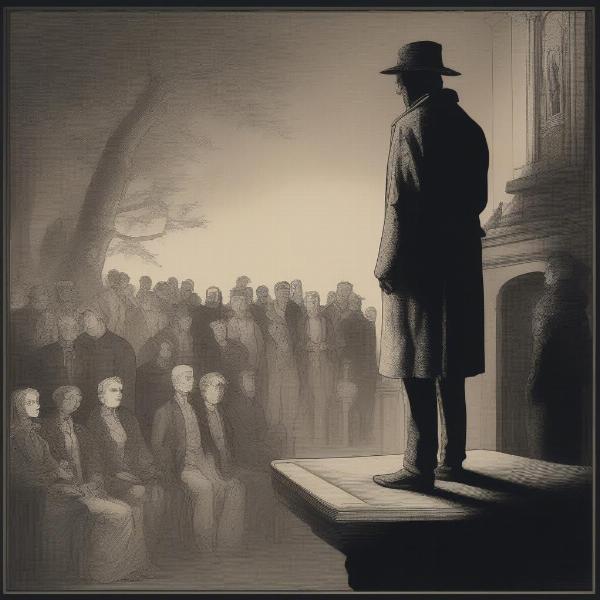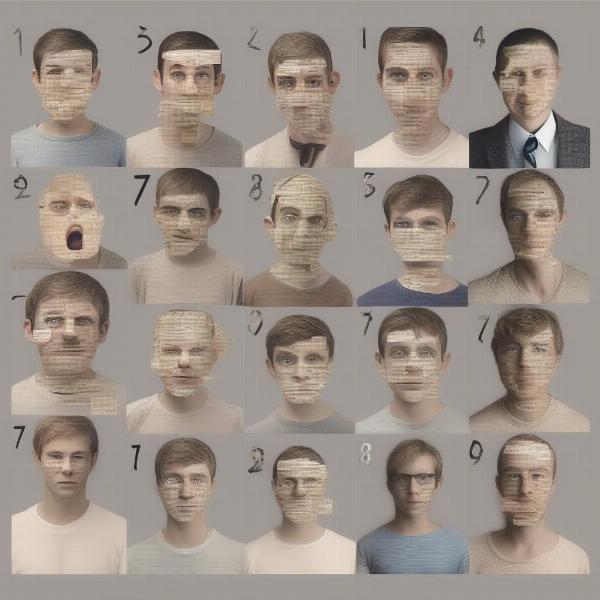The mystery surrounding Sam Westing’s supposed death is the central puzzle of Ellen Raskin’s Newberry Award-winning novel, The Westing Game. Who killed Sam Westing? The answer, surprisingly, is no one. Sam Westing, a master of disguise and games, orchestrated his own elaborate “murder” as the foundation of his final game. He didn’t die at all, but instead assumed different identities throughout the game to observe and guide the players.
For those scratching their heads after finishing the book, or those intrigued by the mystery and seeking answers before diving in, understanding the truth behind Sam Westing’s “death” is key to appreciating the brilliance of the story. This article delves into the intricacies of the game, exploring how Westing manipulated the sixteen heirs and why he chose this unique method to distribute his fortune. What appears to be a murder mystery is actually a complex game of inheritance, self-discovery, and, ultimately, love. To discover the secrets behind the Westing Game and the real motive behind Sam Westing’s elaborate charade, read on!
Unraveling the Westing Game’s Central Mystery
The premise of the Westing Game is built on the apparent death of millionaire Samuel W. Westing. The sixteen heirs, each with their own unique connection to Westing, are tasked with solving his “murder” to inherit his vast fortune. The clues, however, lead them on a winding path of partnerships, betrayals, and surprising revelations. The focus on who killed Sam Westing in the Westing game drives the narrative and keeps readers guessing until the very end. As the heirs investigate, they become entangled in Westing’s complex web, uncovering secrets about themselves and each other in the process. The “murder” itself serves as a catalyst for personal growth and unexpected connections. It’s a clever narrative device that pushes the story forward and forces the characters to confront their own assumptions and biases.
This leads to a crucial question: Why fake his own death? The answer lies in Westing’s desire to orchestrate a game, a grand social experiment. He wasn’t interested in simply handing over his fortune; he wanted to challenge the heirs, to push them to grow and discover their true potential. The mystery surrounding Sam Westing becomes less about finding a killer and more about uncovering Westing’s true intentions and the connections between the players. The focus shifts from who killed Sam Westing in the Westing game to why he constructed this elaborate puzzle. By framing the game as a murder mystery, Westing created a high-stakes scenario that compelled the heirs to actively participate and ultimately learn valuable life lessons.
 The mystery of Sam Westing's fake death in The Westing Game.
The mystery of Sam Westing's fake death in The Westing Game.
The Many Faces of Sam Westing
Central to understanding the game is realizing that Westing plays multiple roles. He appears disguised as various characters throughout the story, including Barney Northrup, Sandy McSouthers, and Julian R. Eastman. These disguises allowed him to observe the players, manipulate events, and ensure the game unfolded according to his plan. Imagine the audacity of faking your own death and then watching the ensuing chaos unfold, all while subtly nudging the players towards self-discovery! This is the genius of Sam Westing’s plan.
His intricate plan involved more than just solving a puzzle. He strategically paired the heirs, forcing them to interact and learn from one another. The partnerships, often unlikely and initially fraught with tension, ultimately led to personal growth and, in some cases, love. It’s a testament to Westing’s understanding of human nature that he was able to predict and orchestrate these transformations through the guise of a murder mystery. It’s more than just solving who killed Sam Westing in the Westing game; it’s about understanding the human element Westing so cleverly manipulates.
 Sam Westing's different identities and disguises.
Sam Westing's different identities and disguises.
The Real Prize: Self-Discovery and Love
While the heirs initially focus on the monetary prize, the real reward of the Westing Game is far more valuable: self-discovery and love. Throughout the game, the players are forced to confront their own flaws, insecurities, and preconceived notions. They learn to work together, trust one another, and appreciate the strengths of others. The game becomes a catalyst for personal growth, transforming them into better versions of themselves. This transformative journey is far more significant than any financial gain. You could say the real inheritance wasn’t money at all, but the wisdom gained through the experience.
Ultimately, the question of who murdered Sam Westing in the westing game becomes irrelevant. The true victory lies in the connections formed and the lessons learned. The game, though built on a deception, ultimately leads to truth and understanding. Westing’s intricate plan was not just a game, but a carefully crafted life lesson for the chosen sixteen. For those still wondering who murdered Sam Westing in the westing game, consider this: maybe the real mystery isn’t about death, but about life.
To learn more about the fascinating intricacies of the novel, visit our dedicated article: who murdered sam westing in the westing game
Beyond the Game: Exploring Themes of Identity and Legacy
The Westing Game delves into deeper themes beyond the central mystery. The concept of identity is explored through Westing’s disguises and the heirs’ journeys of self-discovery. Westing’s multiple personas raise questions about the nature of identity and the masks we wear. Each heir, too, undergoes a transformation, shedding their initial perceptions of themselves and others to embrace their true potential. This exploration of identity adds another layer of complexity to the narrative, making it more than just a thrilling mystery. Similar to how we explore different builds and characters in video games, Westing explores different facets of his own identity. This adds depth and intrigue to the story, forcing readers to question the nature of self and the roles we play.
The idea of legacy is also central to the story. Westing, facing his own mortality, carefully crafted a game to leave a lasting impact on the lives of the sixteen heirs. He didn’t simply want to bequeath his fortune; he wanted to impart wisdom, encourage growth, and foster connection. His elaborate plan serves as a testament to his desire to create a meaningful legacy, one that extends beyond mere monetary wealth. He wanted to make a difference, to leave the world a little better than he found it. This theme resonates with many gamers who strive to leave their mark on the virtual worlds they inhabit. Just as Westing carefully crafted his game, gamers dedicate time and effort to build reputations, achieve high scores, and leave a lasting impression on their online communities. It’s a testament to the human desire to create something meaningful that endures beyond our own lifespan.
 Themes of identity and legacy in The Westing Game.
Themes of identity and legacy in The Westing Game.
Conclusion
The question of “who killed Sam Westing in the Westing Game?” ultimately leads to a deeper understanding of the novel’s intricate themes. While the initial premise revolves around a murder mystery, the true heart of the story lies in Westing’s carefully orchestrated game of self-discovery and connection. The “murder” serves as a catalyst for transformation, pushing the characters to confront their own limitations and embrace their true potential. The real inheritance isn’t the monetary prize, but the wisdom gained, the relationships forged, and the lasting legacy of Sam Westing. While no one actually killed Sam Westing, the game he created profoundly impacts the lives of the sixteen heirs, leaving them with a wealth of experience and a newfound understanding of themselves and each other. It’s a testament to the power of human connection and the enduring impact of a well-played game.
FAQ
- Did Sam Westing really die? No, Sam Westing faked his own death to orchestrate the Westing Game.
- Why did Sam Westing create the game? He wanted to challenge the heirs and help them discover their true potential.
- Who are the Westing heirs? Sixteen individuals with unique connections to Westing, chosen to participate in his game.
- What is the real prize of the Westing Game? Self-discovery, personal growth, and the formation of meaningful relationships.
- What are some of the key themes explored in the novel? Identity, legacy, and the power of human connection.
- What are some of Sam Westing’s disguises? Barney Northrup, Sandy McSouthers, and Julian R. Eastman.
- Why is the question “who killed Sam Westing” important? It sets up the central mystery and drives the narrative, leading to the eventual revelation of Westing’s true intentions.

